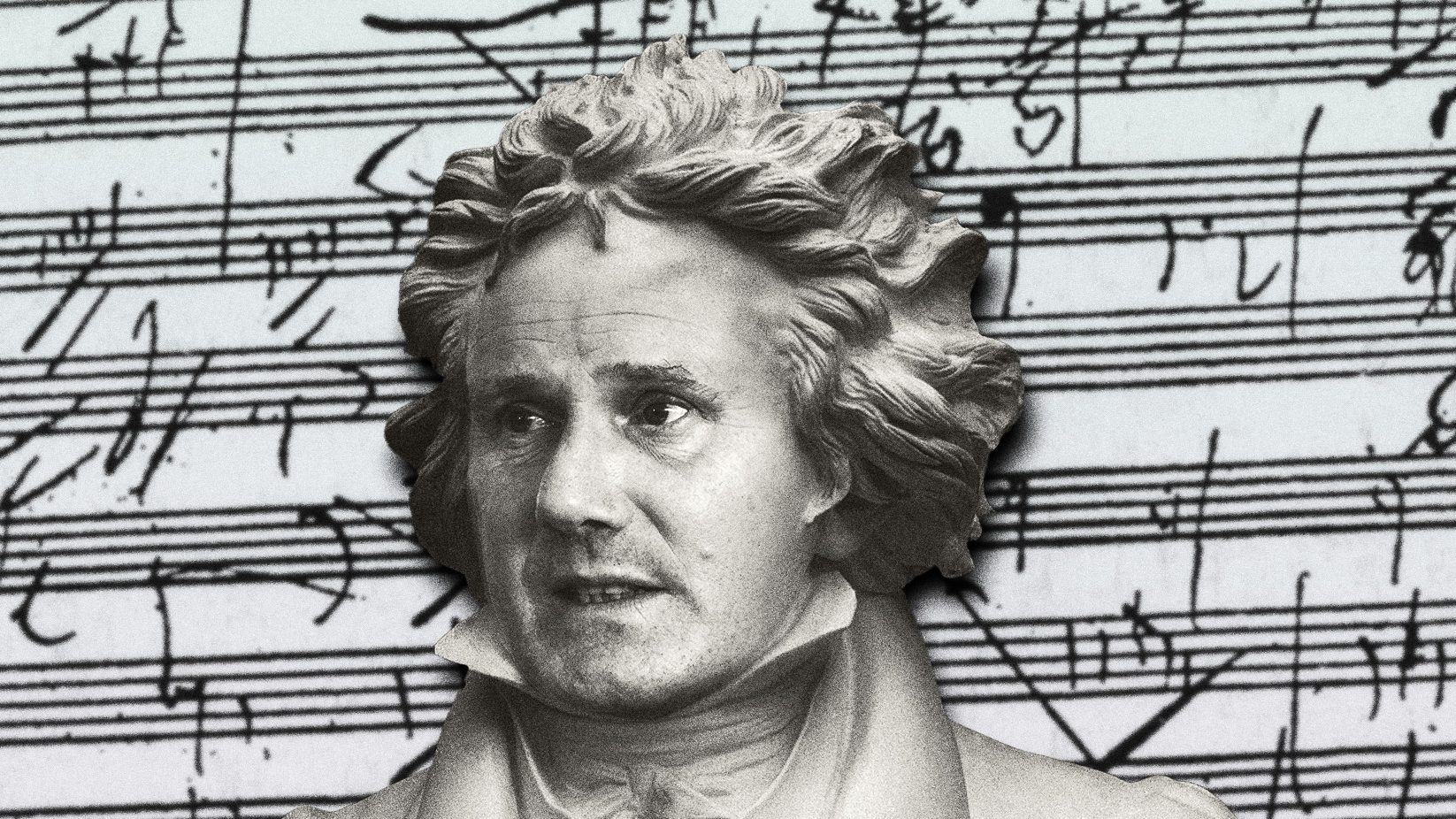Keir Starmer really, really loves Beethoven. The Labour leader – an alumnus of the Guildhall School of Music, where he trained to play the flute, recorder, piano and violin – has chosen work by the German genius time and again when asked to pick his favourite pieces of music. He was unequivocal about his passion for “all things Beethoven” in an interview shortly after being elected leader, and when he appeared on Desert Island Discs a few months later, his choices included sections of Beethoven’s 6th Symphony and his 5th Piano Concerto.
Now Starmer has raised the ire of Brexiteers everywhere by choosing the Ode to Joy – the spectacularly stirring choral anthem from Beethoven’s 9th, adopted as the European anthem by the EU in 1985 – as the piece of classical music that best sums up the Labour Party.
“You’ve got the orchestra, you’ve got the voices, you’ve got this big combination,” he told Moira Stuart on her Classic FM show last month, enthusing: “This is very sort of Labour. Beethoven’s getting everybody on to the stage for this.”
Starmer went on: “I talk about a national mission for the next Labour government. This is a sense of something – it’s got a sense of destiny and is hugely optimistic.” He concluded: “It’s that sense of moving forward to a better place, it’s incredibly powerful.”
Starmer clearly genuinely loves this piece. As Labour leader in waiting, amid the fraught parliamentary battles around Brexit and the Tory leadership election campaign of 2019, he singled it out for its “incredible noise” at a party fundraising event.
But Starmer’s very public expression of his affection for the Ode to Joy provoked an instant fit of paranoia among those who were convinced it was a carefully plotted Remain dog whistle.
“Ode dear Keir”, screamed the Sun, while the Express saw it as a sign of Starmer’s “secret continuing love-in with the EU”. Tory chairman Richard Holden was incensed, or at least he pretended to be. “As if we needed any more proof that Sir Keir is ready to jump back into bed with Brussels at the first opportunity,” he said, accusing Starmer of being poised “to defy the will of the British people and reverse Brexit by stealth.”
And then, at PMQs on November 29, Rishi Sunak had his say. “Just this last week he was asked which song best sums up the Labour Party. What did he come up with? Well, Mr Speaker, he showed his true colours and chose Ode to Joy. Literally the anthem of the European Union. And he will back Brussels over Britain every single time,” said the prime minister, who didn’t sound as if his heart was truly in it.
In fact, the Ode to Joy has been used again and again in the Brexit debate to throw shade, mark out identities and even to deceive.
It started during the referendum campaign itself, as Boris Johnson protested at a May 2016 Leave event that he was far from anti-European. “I am a child of Europe,” he insisted. “My family is the genetic equivalent of a UN peacekeeping force. I can read novels in French and Spanish. I can sing Ode to Joy in German!” This was quickly revealed to be an untruth – he couldn’t manage more than half a bar.
But Remain too found uses for the Ode. As the Brexit-triggering Article 50 bill was being voted on in early 2017, SNP MPs began whistling it in the Commons chamber. A few months later, Russian-German pianist Igor Levit provoked accusations that the BBC was not impartial by wearing an EU flag pin as he gave a gossamer-delicate performance of Liszt’s transcription of the Ode to Joy at the Proms.
Two years on, there was the toe-curling spectacle of Brexit Party MEPs turning their backs as a saxophone quartet performed the Ode to mark the opening of the European Parliament in Strasbourg. The vision of the unholy trinity of Nigel Farage, Ann Widdecombe and Richard Tice standing in stony-faced earnestness only crystallised their worst detractors’ characterisation of them as uncultured little Englanders.
By the time the UK was gearing up to leave the EU, some Remainers were campaigning to put the Ode to Joy at No 1 in the charts for Brexit Day, for some inexplicable reason choosing a recording by the king of middlebrow classical music, and Maastricht’s most famous export, violinist André Rieu.
It missed the charts altogether for January 31, 2020 and only scraped to No 30 in early February.
But the Ode’s use and abuse in the Brexit debate is a comparatively insignificant chapter in its 200-year history.
The Ode to Joy’s very origins were in the idealism of Europe’s age of revolutions, Schiller writing the original poem, An die Freude, on the eve of the French Revolution in praise of a philosophy where “Alle Menschen werden Brüder” (“All people become brothers”). But by the time an ageing and almost completely deaf Beethoven was setting it to music in the early 1820s, the revolutionary dream was dead in the wake of Napoleon, the Congress of Vienna and the Bourbon Restoration.
Across the following two centuries the Ode to Joy would be associated with monarchs, tyrants and dictators, from Frederick William III of Prussia to Mao, Hitler to Ian Smith. But more often it was used to bring together, to resist and to heal. It was the anthem of the Olympic United Team of Germany in the 1950s and 60s. It was sung in protests against Pinochet and at Tiananmen Square. Paul Robeson sang it down the phone to beleaguered Welsh miners in 1957 when under his travel ban. The Vienna Philharmonic played it on the site of Mauthausen concentration camp on the 50th anniversary of its liberation.
But it was the Ode’s use as a celebration of European unity that Starmer highlighted in his interview.
“I was in my 20s when the Berlin Wall came down,” he said. “This was an incredible feeling of freedom, of change… things were going to be fundamentally different,” he said, alluding to the Ode to Joy being performed at the historic Christmas Day 1989 concert in Berlin. This, and his heartfelt words about how values of equality and human rights were instilled in him as a child, stood in stark contrast to the divisive and negative mood music currently coming from a government on its last legs.
Starmer’s choice of this much-contested piece to sum up his party was no coded message on his intentions towards the EU. But his endorsement of its optimism (“there’s a brighter future that we are going confidently towards,” as he put it), is a welcome sign that, after seven years of gloom, a leader capable of articulating an aspirational politics – even a sense of hope itself – may be on the way.




